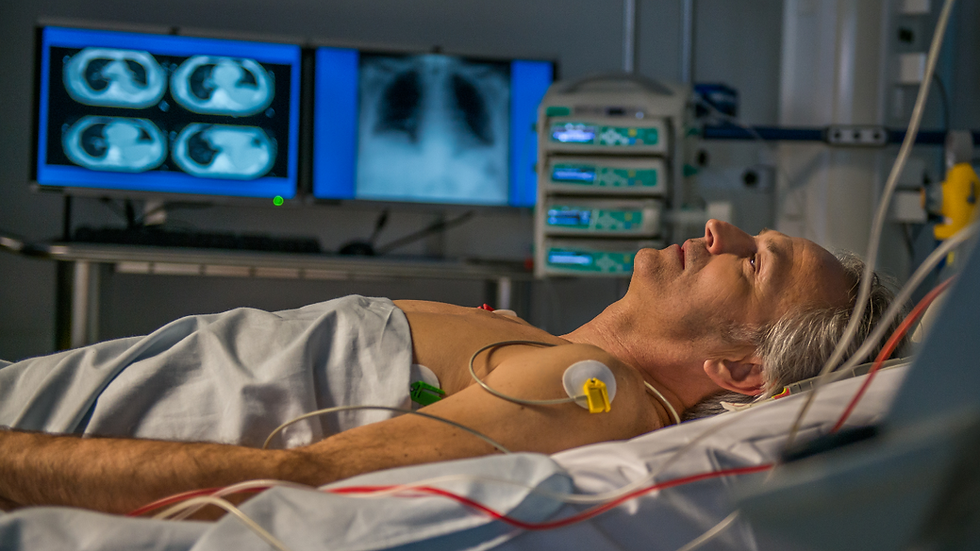
Intensive care
These are places where people whose lives are at risk and who need special medical care as a result of serious illnesses and/or various damages to their bodies due to injuries and traumas are observed and treated.
People whose vital functions are at risk as a result of one or more of their organs failing to function are kept under observation in intensive care units by people trained on what to do in such situations. The main purpose of intensive care units, where possible negativities are immediately intervened, is to prevent the patient from losing touch with life by applying all necessary medical treatment. Intensive care units are equipped to intervene early and effectively in patients whose general condition suddenly deteriorates or whose health condition deteriorates rapidly during follow-up. Patients are critically ill. Intensive care units are managed by taking serious measures to achieve goals such as maintaining health services in the most efficient way and minimizing the risk of infection, taking into account the situation. For this reason, patient relatives can meet with patients in intensive care at certain times of the day or get information from the responsible healthcare professional.
Care is taken to ensure that the patient's relatives who come to visit are first-degree relatives. In intensive care units; Special medical devices such as respiratory support devices, also known as mechanical ventilators, oxygen support systems, dialysis and bedside imaging equipment are used.
What does intensive care check?
Critical Surgeries: After any surgical procedure is performed to eliminate the problems occurring in vital organs such as the heart and brain, or patients with chronic organ failure are transferred to the intensive care unit for the appropriate period of time in order to minimize the risks foreseen in the early period for the patient and to intervene quickly in situations that may arise. follow-up is required. If no complications are encountered, the patient can leave the intensive care unit in a short time and complete the remaining part of his treatment in clinical services. Traumas: Blows to the head area of the body can cause injuries and some damage to the brain.
Polytrauma is when different parts or organs in the body undergo serious deterioration and lose their functions, thus rendering other organs inoperable and creating a life-threatening risk. A person who suffers a head injury or polytrauma requires medical attention within minutes. Likewise, organs in the ribcage deteriorate and fail to function as a result of heavy blows, sometimes resulting in the patient being treated in intensive care. Sudden Cardiac and Respiratory Arrest: The situation that occurs when the person cannot breathe, does not react despite all stimuli, and has no heart rhythm is not called "sudden cardiac arrest". Respiratory arrest is the inability of the person to carry out the function of breathing and carrying oxygen to the body. Both conditions are medical conditions that require intervention within seconds/minutes and require very rapid and close monitoring, which may result in irreversible deterioration of the patient's mental functions with each passing minute.
Acute Respiratory Failure: It is a disorder that occurs as a result of the lungs having difficulty in receiving the oxygen the body needs and having difficulty removing carbon dioxide, which is extremely harmful to the organs. This situation can damage many organs. Acute and Chronic Organ Failure: Acute and chronic organ failure, a condition frequently encountered in intensive care units, is a serious disease that can lead to fatal consequences. Deterioration in any organ may cause other organs to lose their function over time and lead to multiple organ failure. Poisoning: Many factors such as chemicals, risky foods, and air pollution can cause acute or chronic poisoning.
Intensive care units play an important role in the treatment processes of life-threatening acute and chronic poisonings. Intensive care units in our hospital: Internal medicine intensive care Surgical intensive care Coronary intensive care Cardiovascular intensive care Neonatal intensive care continues to serve.
FOR INFORMATION AND APPOINTMENT, YOU CAN LEAVE YOUR NUMBER OR ASK OUR EXPERTS
YOU CAN LEAVE YOUR NUMBER FOR INFORMATION AND APPOINTMENT AND ASK QUESTIONS TO OUR EXPERTS



-04.png)
-06.png)
-05.png)
-08.png)
-07.png)





















